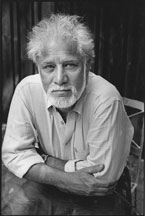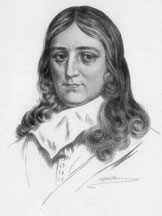The use of poems, verse, songs in contemporary novels (Part 2)
By Dilshan BOANGE
Poetry and verse in novels can work as devices that perform many
functions. They could be elements for textual beautification, to
embellish the novel as decorative facets that may seem like attractive
ornamentation in a house. They may perform 'plot function,' to indicate
to the reader how the story unfolds, giving indications in the narrative
of (the) situations, or (the) characters' mindset(s) or the holistic
development of the story; it cold be any one or more of these.
 |
 |
| Michael Ondaatje |
John Milton |
In Selwyn Jackson's thesis this point is validated with reference to
the use of poetry in Joyce's novels.
"The different uses to which poetry is put reflect the fundamentally
differing character of the novels. Nevertheless, an examination of the
various guises in which poetry appears provides a revealing approach to
the different qualities of the novels." (Jackson, 1978, p.41)
Therefore , the use of poetry/verse or songs can have a diverse role
in a novel at a level of either theme or narrative or both, of the
story, or both. In the internationally acclaimed novel The English
Patient which won Ondaatje the coveted Booker prize, the use of poetry
and verse and song lyrics is a very prominent feature. The text of the
novel is markedly characterized with the inclusion of lyrics extracts
from Jazz songs, lines from poems. For example, lyrics from two jazz
songs are featured in pages 64 and 108. They are from the songs "When I
take my sugar to tea" and "Manhattan", respectively. These elements do
not appear to perform a strict 'plot function' as such, but seem to
function more as devices to read the cultural background of the
characters. Such verse incorporation can be contributory to character
portrayal, as well as the novels overall development. On these lines
there is academic validation in "The Poems of James Joyce and the use of
Poems in his novels" which states that in the highly celebrated novel
Ulysses, James Joyce presents poetry as a significant aspect to
understand character of Stephen in the novel. Like the character of
Stephen in Joyce's Ulysses, the character of Hana (the grief besieged
nurse who tends to the invalid English patient) in The English Patient,
could be understood for her sense of taste, mindset, and soci-cultural
background when one focuses on the jazz lyrics that are in the text,
associated with her in certain scenes found in the course of the
narrative.
Poetry and song lyrics are bound with characters and events.
One such instance relating to the character of Hana would be what is
on page 50 of the novel, where while attending to injured soldiers, she
flits to a moment of escapism by recalling the following two lines from
a song:
Each time I chanced to see Franklin D.
He always said "Hi, Buddy" to me.
While there are several jazz songs from which Ondaatje has excerpted
lyrics and woven in to the novel's fabric, there are also extracts from
poems that are threaded into the text of the prose based work. A notable
example of this facet is found in page 144 of the novel where an eleven
line excerpt from John Milton's epic verse Paradise Lost, is featured as
what was recited by the character of Katharine Clifton, (the English
patient Count Almasy's secret lover) during an evening around a
campfire. The extract itself does not strictly present any direct
functional purpose in respect of plot and how the story of the novel
would progress. Yet the fact that it is of a classical work of
literature, says much in relation to the character it is associated
with, in the novel's narrative. The fact that it would qualify as a
feature where a classicist tone is resonated from the text, presents a
window into the mindset of the character, as well as the scenario that
is made to be brought out through that particular instance of the
narrative. This would be of a different level in terms of the tone
generated, as well as the taste and sense of the characters associated
with, when considering the jazz lyrics excerpts or the lines quoted from
a song by A.A Milne, featured on page 211 of the novel. And another such
inclusion or incorporation of poem excerpt would be what is found on
page 288 of the novel, where Hana remembers a line from a poem that was
told her by the English patient, and says it to her lover the British
soldier of Indian origin, Kirpal Singh who is of Indian origin. The line
is presented in the novel's text as a quote: "Love is so small it can
tear itself from the eye of a needle." Ondaatje mentions in the section
of 'Acknowledgments' of the book that this line, is by Anne Wilkinson.
One may view the line of poetry as possibly being a subtle indicator of
the nature of the love that has developed between Hana and Kirpal Singh.
However, much has to be read into the line if one is to view it as
narrative device that tells the reader of what unfolds of the love
affair between Hana and Kirpal. Yet the fact that it is presented in the
context of two young lovers is quite pertinently posited for the reader
to grasp a subtle narrative sense connected to the story altogether.
Therefore one may suggest that such contextual sense, may bring out
excerpts of poems and songs in The English Patient as devices that may
at times have some 'plot function' purpose. However, admittedly, such an
argument needs much more thorough investigational analysis to conclude
with soundness.
One can say that the song and poem excerpts featured in the novel may
have different purposes, and not meant to serve a common function in the
course of the story text. Selwyn Jackson's study also notes that songs
and poems in James Joyce's Finnegan's Wake have more than one role.
The poems or songs which Joyce wrote for FW have two functions. They
are part of the narrative structure of the book, and are related, more
or less tightly, to their context in the plot. (Jackson, 1978, p.104)
Similarly, the use of excerpts of poetry and song lyrics cannot be
grouped into a common function category in The English Patient. Apart
from what functional value they may or may not have, in respect of
narrating the story (to serve 'plot function'), what would the
incorporation of poetry excerpts and song lyrics contribute to the novel
as a work of literature, and the experience of reading it? The
incorporation of poems, songs, verse in an essentially prose based work
can certainly enhance the effect of the text to the reader in numerous
ways.
|

